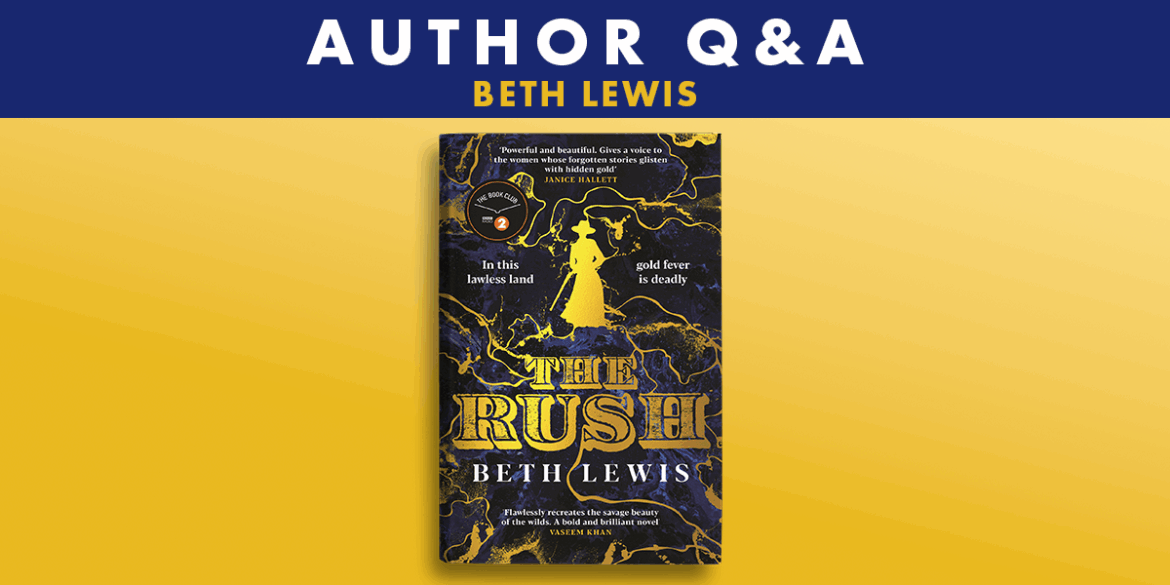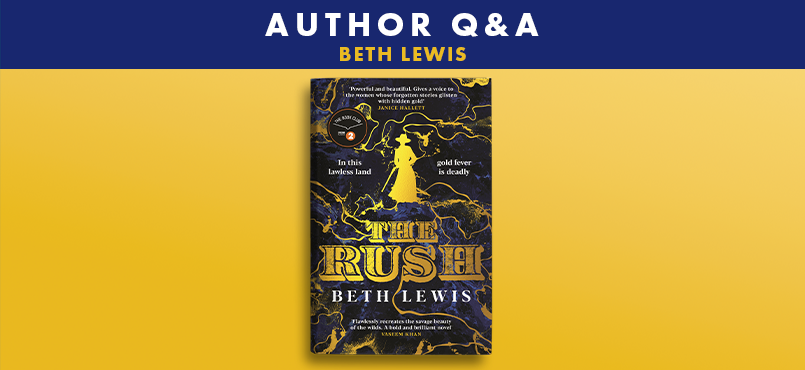09 June 2025
* A BBC RADIO 2 BOOK CLUB PICK *
‘A gut-punching mystery that vibrantly captures the savagery of the Alaskan frontier’ – ANNA BAILEY
‘Lewis flawlessly recreates the savage beauty of the wilds. Bold and brilliant’ – VASEEM KHAN
‘Gives a voice to the women, whose near-forgotten life stories glisten with hidden gold’ – JANICE HALLETT
Gold fever has taken him. I believe he means to kill me…
Canada, 1898. The gold rush is on in the frozen wilderness of the Yukon. Fortunes are made as quickly as they’re lost, and Dawson City has become a lawless settlement.
In its midst, three women are trying to survive on the edge of civilisation. Journalist Kate has travelled hundreds of miles after receiving a letter from her sister, who fears that her husband will kill her. Martha’s hotel and livelihood are under threat from the local strongman, who is set on buying up the town. And down by the river, where gold shimmers from between the rocks, Ellen feels her future slip away as her husband fails to find the fortune they risked so much to seek.
When a woman is murdered, Kate, Martha and Ellen find their lives, fates and fortunes intertwined. But to unmask her killer they must navigate a desperate land run by dangerous men who will do anything for a glimpse of gold…
Set on the Klondike during the gold rush, The Rush tells the story of three women and how their lives intertwine after the death of another. What inspired you to write this story?
I’ve always loved the scale and romance of a gold rush, where life-changing fortune is there for the taking, no matter who you are. I loved the idea that any person with the will and the barest of equipment, could leave a millionaire. The Klondike in particular marries that with the extraordinarily beautiful and dangerous landscape of the Yukon. It’s just such a great setting for a novel!
Part of the charm of this book is the wonderful setting – both the time and place. What kind of research did you do to make it feel authentic?
I spent a lot of time searching library archives online for stories of these women and, in Kate’s case, writings by the journalist she’s based on. But finding in-depth information about them was tricky. Women’s stories at that time were largely overlooked and not written about until long after the fact. I did find a great book by two women ‘adventurers’ who travelled to the Klondike expressly to write about it. What really helped were the number of photographs taken during the gold rush. A few years prior, Kodak had released their first portable film camera so dozens of journalists and photographers got one and flooded into the Klondike to document it. That was such a wonderful resource because reading about the conditions there was one thing but seeing them in photographs brought my understanding of the time to another level.
The Rush is told in the voices of three women: Kate, Ellen and Martha. Do you have a favourite between them, perhaps there was one perspective that you particularly enjoyed writing?
I really couldn’t pick. I love them all for different reasons. Kate is the ambitious young woman on a mission, Martha is the no-frills, savvy businesswoman who mines the miners and refused to be intimidated, and Ellen is the long-suffering miner’s wife who finds solace in the landscape and her own escape from the shackles of marriage. They each have distinct voices that made them a joy to write. If I had to pick a favourite overall character, it would probably be Kate’s dog, Yukon. He’s based on Emma Kelly’s dog Klondike, and she was the real-life inspiration for Kate’s character. (He’s fine!)
I hear you’re a bit of a wilderness junkie. Did your passion for the outdoors feed into certain scenes? Kate riding the White Horse Rapids springs to mind!
Absolutely, I’ve always loved the wilderness, Canada in particular and spent a lot of time in the Pacific Northwest. I’ve camped in the wild and had some close encounters with bears and killer whales, hiked on a glacier and have done some white-water rafting in the Rockies. So there was some drawing from lived experience but also a lot of reading!
Is there anything you can tell us about your next book?
My next book is my take on a traditional Western. Think outlaws, sheriffs, homesteaders, horse chases, gunfights and even a train robbery. But like with The Rush, this story is all from the perspective of the women at the time. Although often overlooked in favour of the famous male cowboys and marshals, there were plenty of women in the wild west, in all walks of life, and I wanted to bring their stories to life.

